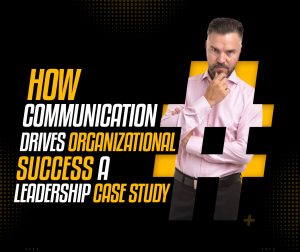Antoni Lacinai
Invisibility can be a superpower
But many times not…
Have you ever felt invisible? Like no one sees you?
I remember when I took a flight to Stockholm one morning and felt completely… insignificant.
I was hungry. The stewardess passed by me four times without taking any notice. It didn’t matter that I sought eye contact and waved and said, “Excuse me.”
Not being seen. Not being recognized. It’s not enjoyable at all. It is a deep human need to belong.
How is it at your workplace?
- Do you say “Good morning” or stare at your phones?
- Do you invite the new colleague to lunch?
- Do you interrupt people in meetings?
I talk about this in my keynotes all the time.
Whether you’re a manager or not, you can work wonders by giving your attention and being a kind soul.
It builds the right culture and increases engagement and workplace happiness for everyone.
We fear being left out. We love to belong
PS – today, find a way to include somebody.
Team Antoni Explains
Antoni Lcani‘s message revolves around the idea that invisibility can feel like a superpower in some contexts, but more often than not, it’s an undesirable experience. He shares a personal anecdote about feeling invisible during a flight to Stockholm, emphasizing the discomfort of not being seen or recognized.
The key points in Antoni’s message are:
Feeling Invisible:
Antoni describes a situation where he felt completely insignificant during a flight. Despite seeking attention from the stewardess, he wasn’t noticed. This experience leads to the broader concept of feeling invisible, where one’s presence is not acknowledged.
Human Need to Belong:
Antoni highlights the deep human need to belong. Not being seen or recognized goes against this fundamental desire for connection and acknowledgment. He suggests that being ignored is not an enjoyable experience.
Workplace Dynamics:
Antoni extends the discussion to the workplace, posing questions about the interactions among colleagues. He asks whether people at the workplace greet each other, engage in social activities like inviting new colleagues to lunch, or show basic courtesy in meetings.
Power of Attention and Kindness:
Antoni suggests that irrespective of one’s role in the workplace, individuals can make a positive impact by giving attention and being kind. This, according to him, contributes to building the right culture, increasing engagement, and fostering workplace happiness for everyone.
Including:
The message concludes with a call to action, encouraging the audience to find ways to include somebody that day. This emphasizes the importance of inclusivity and highlights how small gestures can make a significant difference in someone’s experience of belonging.
You might want to embody and promote these principles in your interactions and work culture. Emphasizing the value of recognizing others, fostering a sense of belonging, and promoting kindness can contribute to a positive and inclusive team environment.




